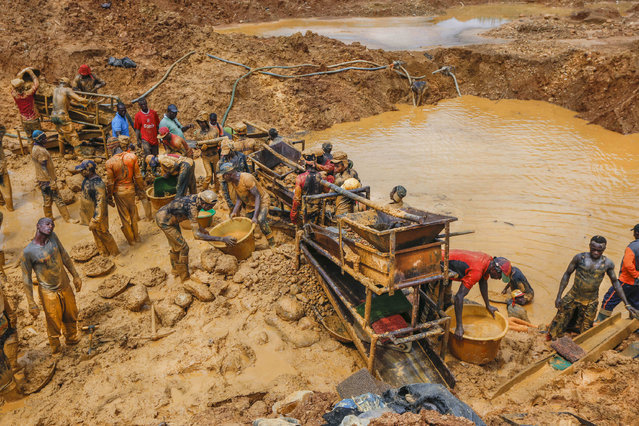
Tropenbos joins calls for small-scale mining ban
Tropenbos Ghana, a civil society organisation (CSO) with an interest in protecting the environment, has joined the push for a ban on all mining and related activities in the country as a measure to deal with illegal mining, commonly called galamsey, and its negative impact on the environment.
It said a five-year ban should precede an inventory of the state of the country’s forest reserves and develop a complete strategy to nest landscape restoration as a critical part of small-scale mining.
Advertisement
The CSO maintained that the government should also take deliberate steps to support green development pathways, including eco-tourism and the carbon market.
New strategies
A Project Manager at Tropenbos Ghana, Daniel Kofi Abu, at a press conference in Accra on the galamsey menace, said there was a need for the government to revise and reintroduce new and more effective strategies to curb illegal mining.
"It is obvious the current strategies are not yielding the desired results because they are not effective; we are still seeing activities of illegal miners still flourishing in the country,” he said.
“And so, we are proposing a ban on all mining activities for the next five years to provide the country ample time to conduct an inventory of all our forestry reserves. As we speak, we do not know the degree of damage that has been done to our forest,” he said.
Environment problems
Mr Abu stated that the activities of illegal miners could be blamed for many environmental problems such as water pollution, deforestation, poor soil fertility and limited access to land for agriculture.
He said if the trend continued, the country might soon experience food shortages.
“For instance, a plunged land will take approximately 40 years to regain its strength,” Mr Abu said.
He explained that the use of mercury and other chemicals had dire health implications that included cancers and other serious water diseases.
“Drought, climate change and other consequences (such as) cost of reclamation. It costs an average of $60,000 to reclaim one acre of mined land to a depth of 900 millimetres.
“The government loses nearly 11 per cent of its gross domestic product (GDP) to environmental degradation; that is approximately $7.0 billion annually,” he said.
He added that the fight against illegal mining could be won only when the government realigned its policies and reintroduced a clear-cut strategy.
Production position
Another Project Manager of Tropenbos Ghana, Dr Isaac Nunoo, stated that the country could lose its second position in world cocoa production if illegal mining persisted.
He said that was because the country was losing its cocoa farmlands to illegal mining.
He said research conducted by the Tropenbos Ghana showed that 12,200 hectares of cocoa land had been lost in Amansie West between 2010 and 2020.
“Selling of cocoa farms and agricultural land for mining is rising. Food is becoming scarce and expensive in mining communities.
Mercury usage has also increased in terms of intensity, scale and scope in the country,” he said.
Red zones
To help resolve the challenges, Dr Nunoo underlined the need for all cocoa areas to be marked as red zones against mining.
He said the government must support cocoa farmers to improve yield and income.
“Reclamation bonds must be signed between miners, metropolitan, municipal and district assemblies and traditional authorities,” he said.




